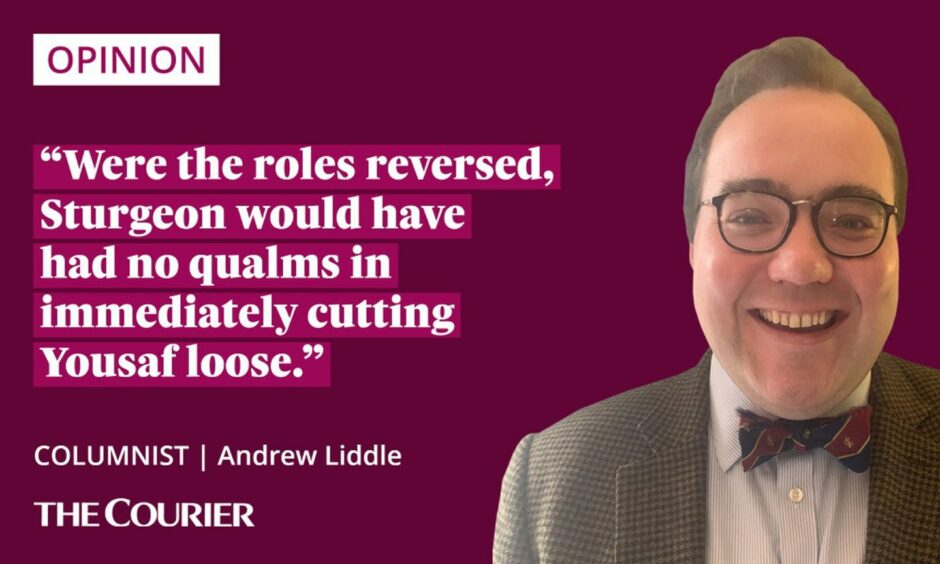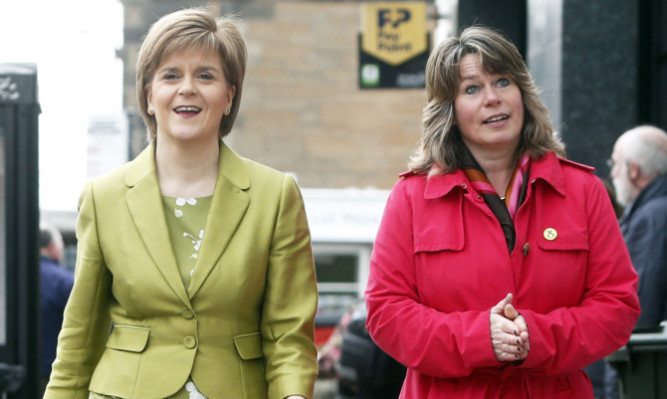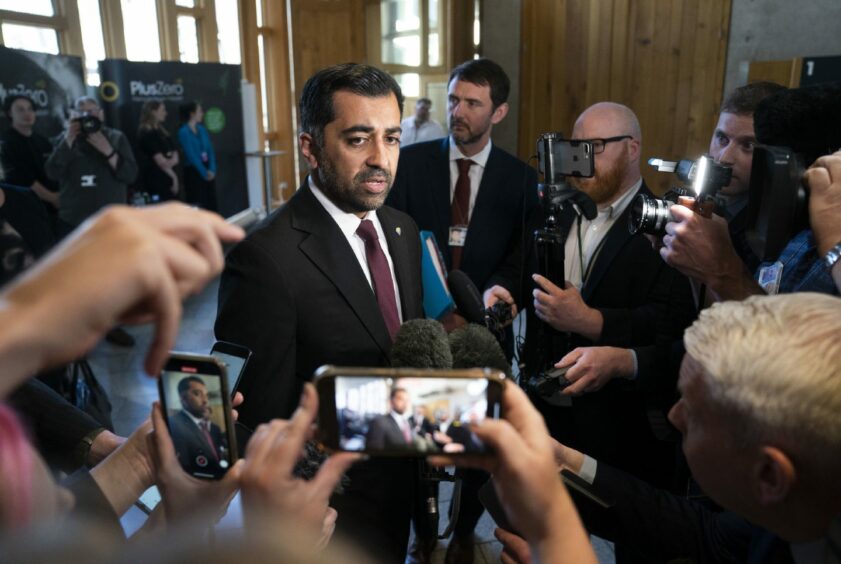In politics – as in life – loyalty is often viewed as a virtue. It is a source of stability and a precursor to patronage. It helps leaders ride out difficult times and allows the ambitious to advance.
But loyalty in politics – quite literally in the case of someone like Julius Caesar – can cut both ways.
If a politician has become a liability, or overly ambitious, or tarnished, then remaining loyal to them risks damaging you and your party.
In this instance, loyalty can become not a virtue but a vice. Ruthlessness is the order of the day.
Nicola Sturgeon is a leader who understood this reality all too well.

As a leader, she fostered some loyal lieutenants, such as her long-standing deputy, John Swinney, who provided consistency and stability.
She supported them and they, in turn, supported her, even when the going got tough.
But Sturgeon was also a leader who knew when loyalty had run its course, and when it was time for ruthlessness to take over.
Throughout her near decade in office, she showed herself to be more than willing to throw overboard anyone who gave even the merest hint of capsizing the Sturgeon ship.
Many SNP politicians – not least former MP, now MSP, Michelle Thomson – quickly came to realise that Sturgeon’s unassailability came in large part from her cold and calculated willingness to dispose of friends as well as enemies.
After his predecessor’s recent arrest, Humza Yousaf has himself had to wrestle with this reality.
Humza Yousaf’s support for Nicola Sturgeon goes beyond defence
In some ways, Humza Yousaf’s decision not to suspend Nicola Sturgeon and instead remain loyal to her can be viewed as worthy of praise, at least in terms of its impact on the moral character of our politics.
Politicians – like everyone else – should be given the benefit of the doubt. And – in cases where the police become involved – they should, of course, be presumed innocent until they are proven guilty.
The problem is that Yousaf’s loyalty to Sturgeon goes well beyond a promotion of probity and into the politically disastrous.
Far from just defending her right to defend herself, Yousaf has been repeatedly and seemingly unstoppably effusive in his praise for his predecessor.
She is the “most impressive politician in Europe” – news to Merkel and Macron – who “trashed [the opposition] in every single election” – news to voters in 2014.
Yousaf himself is far from alone in this. In an utterly bewildering move, the entire SNP parliamentary group agreed to send the former First Minister flowers following her arrest.
The SNP has, of course, long been enamoured with all things Scandinavian, but this latest bout of Stockholm Syndrome risks not just Yousaf’s future as First Minister, but the political future of the entire SNP as well.
Nicola Sturgeon would not have shown Humza Yousaf the same mercy
Almost whatever turn events now take – and it must be noted that Nicola Sturgeon has strongly protested her innocence of any wrongdoing – Humza Yousaf and the SNP will be associated with the outcome.
By professing his loyalty, the new First Minister has missed the chance to disassociate himself and his party from potential trouble in the future.
Rather than tossing the problematic person overboard before they risk capsizing the ship, Yousaf has not just kept them onboard but praised their seamanship.
The great irony here – and it is one that has been lost on no one except, perhaps, the new First Minister himself – is that, were the roles reversed, Nicola Sturgeon would have had no qualms in immediately cutting Humza Yousaf loose.
Whatever her other failings as a leader, she understood that once you reached a certain point in politics, you have to be ruthless.
Otherwise, like Yousaf, you end up being loyal to a fault.












